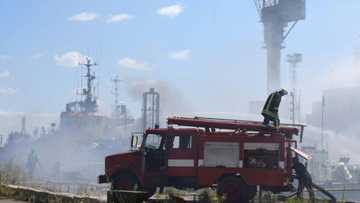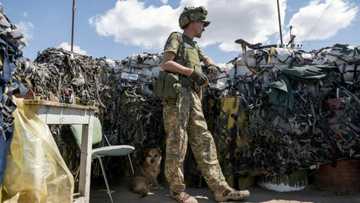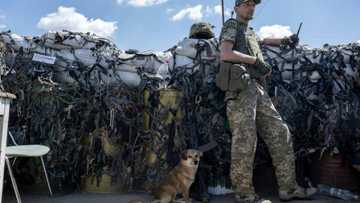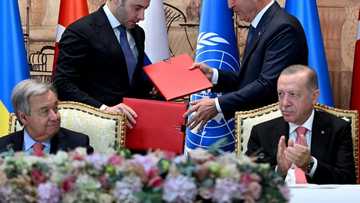Ukraine strikes key bridge in Russian-held Kherson
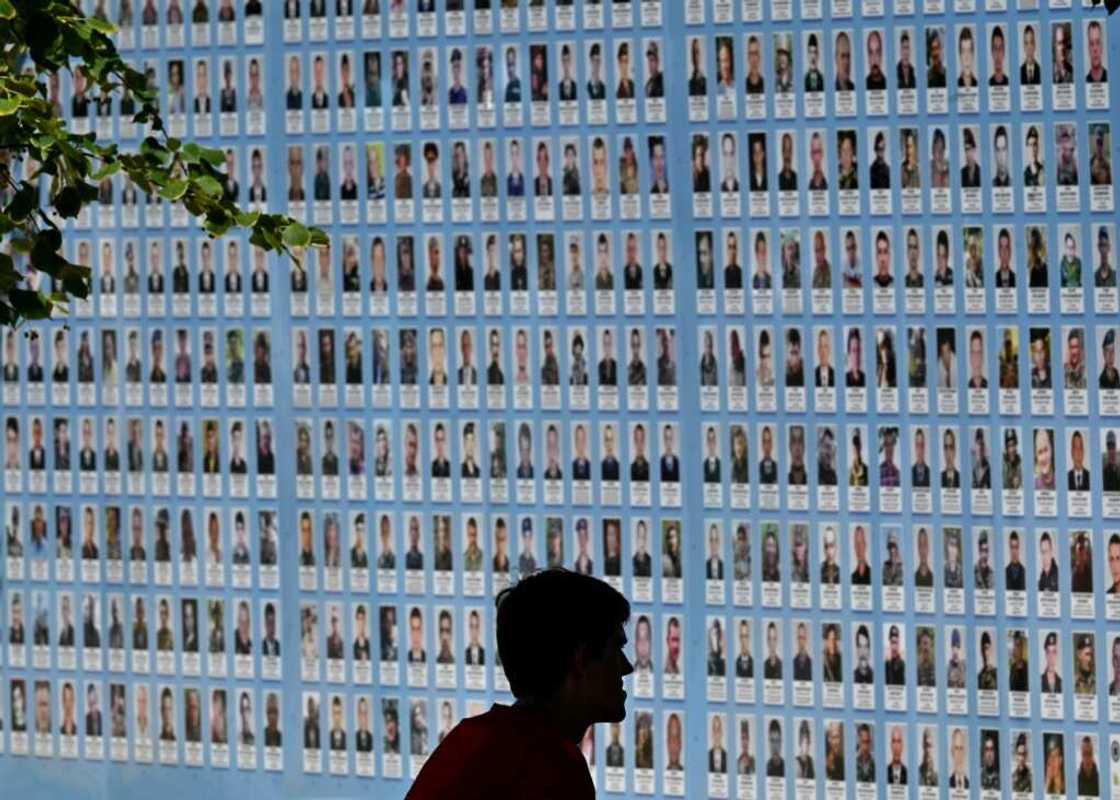
Source: AFP
PAY ATTENTION: Click “See First” under the “Following” tab to see Legit.ng News on your Facebook News Feed!
Ukrainian artillery on Wednesday struck a key bridge in Moscow-controlled territory in south Ukraine, damaging an important supply route as Kyiv's forces look to wrest back the Kherson region.
The strike on the Antonivskiy bridge over the Dnipro river came hours ahead of the opening in Istanbul of a joint observation centre to monitor Ukrainian grain exports that have been blocked by the Kremlin's warships.
German authorities said Russian energy giant Gazprom had drastically cut gas deliveries to Europe via the Nord Stream pipeline to about 20 percent of capacity, after the European Union agreed a plan to slash its usage this winter.
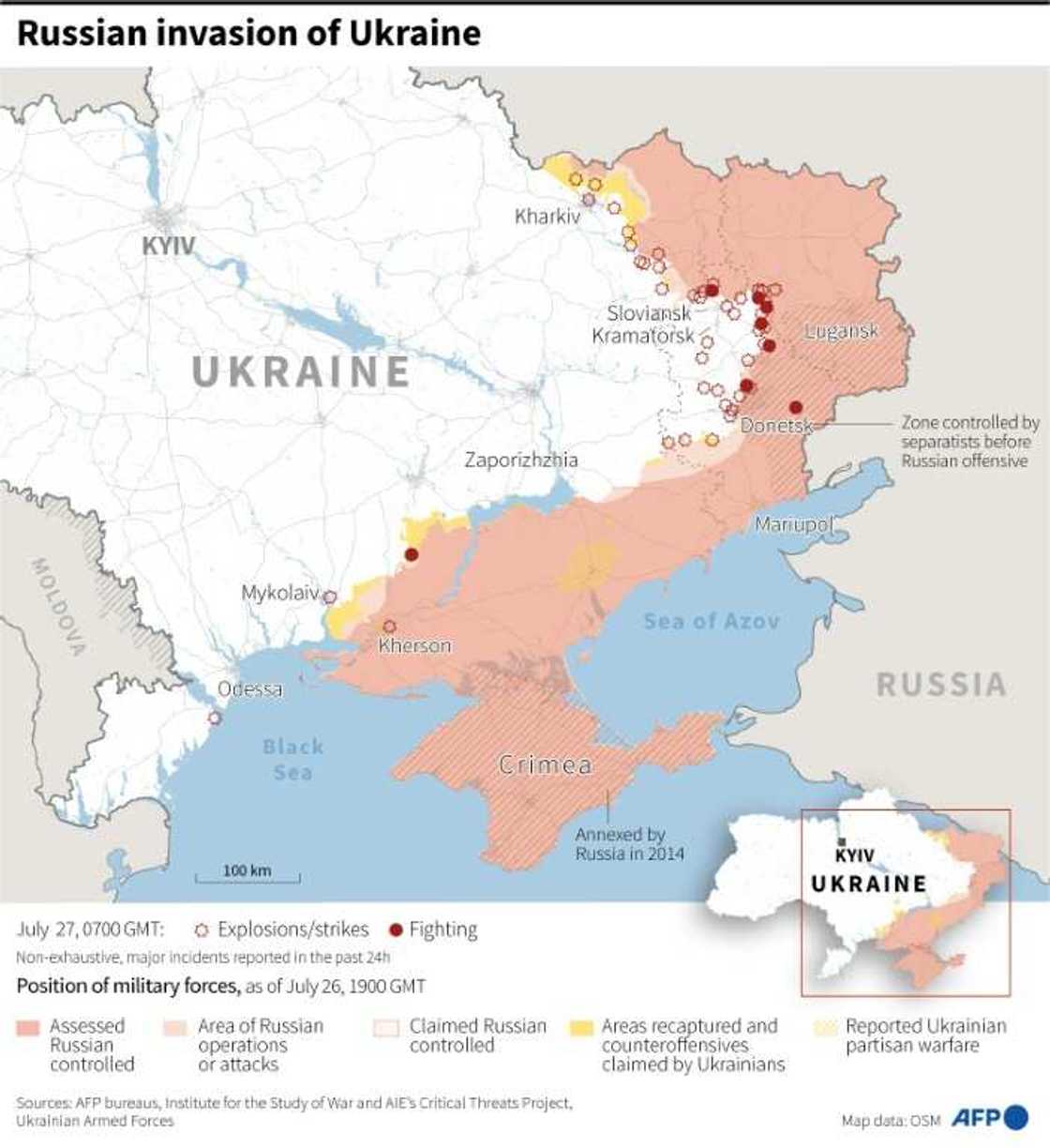
Source: AFP
Kirill Stremousov, the deputy head of the Russian-installed regional administration in Kherson, confirmed the bridge had been hit overnight and traffic had been halted.
PAY ATTENTION: Join Legit.ng Telegram channel! Never miss important updates!
But he sought to downplay the damage, insisting that the attack would not affect the outcome of the hostilities "in any way."
"The special military operation is continuing," Stremousov said in a video posted on social media, using the Kremlin's preferred term to refer to their invasion.
Ukrainian forces in recent weeks have been clawing back territory in the Kherson region, which fell to Russian forces easily and early after their invasion launched on February 24.
Their counter-offensive supported by Western-supplied long-range artillery has seen its forces push closer to Kherson city, which had a pre-war population of under 300,000 people.
'Leave Kherson'
Ukrainian officials in the region have said their forces in the Black Sea region have changed tack, from defensive to offensive and that Kherson will "definitely" be liberated by the end of September.
Russian forces "should leave Kherson while it is still possible. There may not be a third warning," Ukrainian presidential advisor Mykhaylo Podolyak said on Twitter after the attack.
Later Wednesday, the United Nations and Turkey are due to open a joint centre with Russia and Ukraine in Istanbul to coordinate the resumption of grain deliveries across the Black Sea.
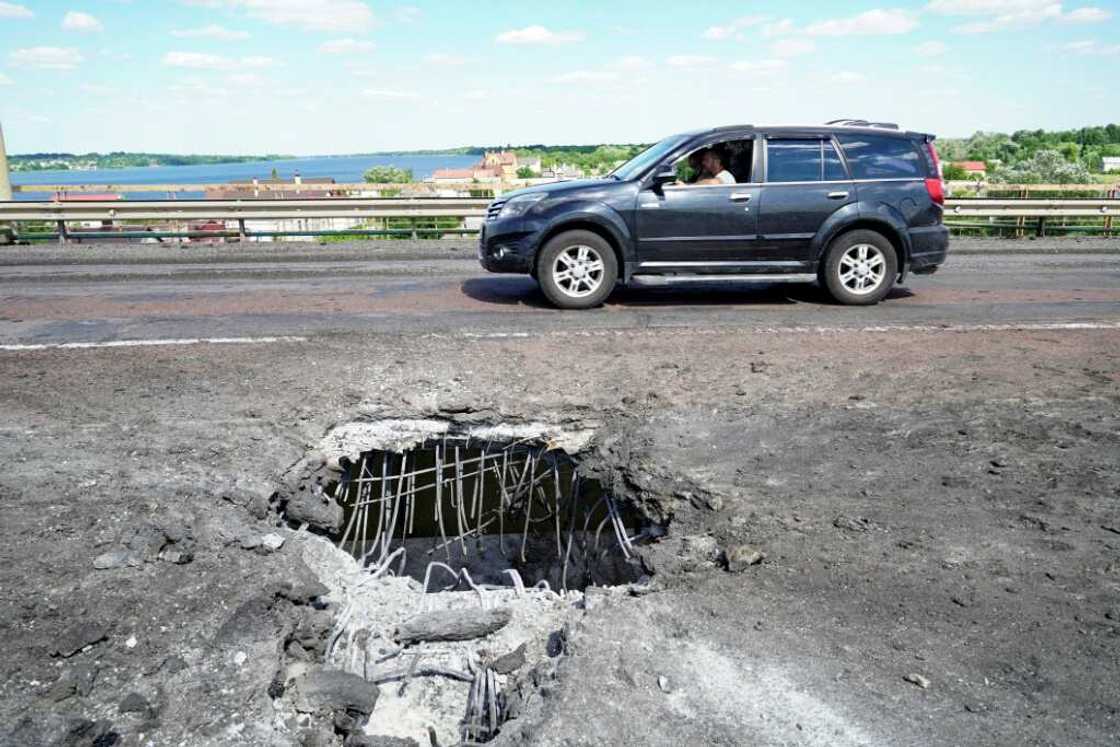
Source: AFP
The two sides agreed a mechanism last week to unblock millions of tonnes of grain trapped by a Russian blockade of Ukrainian ports -- an accord called into question by Russian strikes on Ukraine's Odessa port within 24 hours.
Kyiv insists it is still preparing for the first ships to leave and said Monday that it hopes to restart exports "this week".
The blockage of deliveries from two of the world's biggest grain exporters has contributed to a spike in prices that has made food imports prohibitively expensive for some of the world's poorest countries.
Erdogan wants Turkey -- on good terms with both Kyiv and Moscow -- at the centre of diplomatic efforts to halt the five-month war.
Russian news agencies -- citing Moscow's embassy in Ankara -- said Wednesday that a previously announced meeting between Erdogan and Russian leader Vladimir Putin would take place next Friday at the Russian Black Sea resort city of Sochi.
'Thrown into the barn'
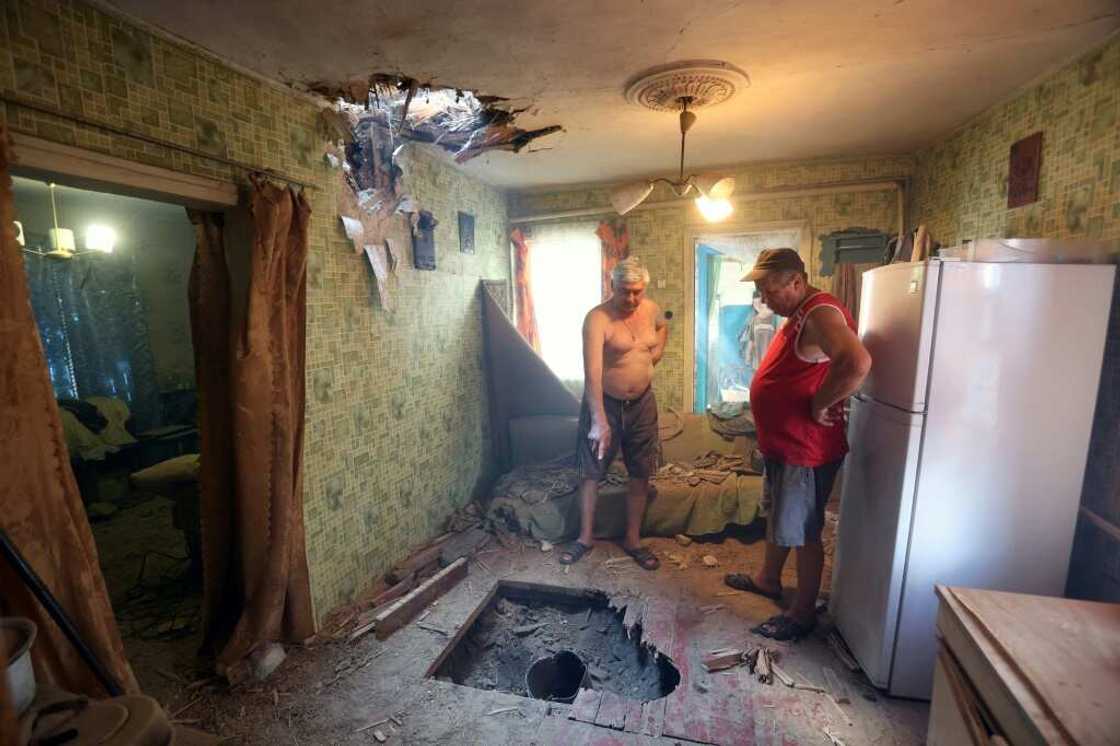
Source: AFP
While Ukrainian forces have been piling pressure on Russian positions in the south, the eastern Donbas region has seen intense fighting.
AFP journalists in Bakhmut, one of the remaining towns in Donbas under Ukrainian control, heard sporadic artillery fire and saw a house on the outskirts that had been hit by a Russian shell.
"I was in the barn and was going to go out. I heard a whistle. And I don't remember anything. It exploded and I was thrown into the barn by explosion wave, 51-year-old Roman told AFP.
The head of the Donetsk region in Donbas, said on social media that Russian artillery had hit a hotel and initial reports suggested the strikes had left people dead and injured.
Deepening an energy crisis in Europe sparked by the war, Germany's energy regulator said gas flows via the key Nord Stream pipeline had dropped to 20 percent of capacity on Wednesday from 40 percent.
EU states have rejected Gazprom's claims of technical problems and accuse the Kremlin of squeezing supplies in retaliation for Western sanctions over Moscow's war in Ukraine.
The 27-nation bloc in response on Tuesday agreed a plan to reduce gas consumption by 15 percent this winter to break its dependence on Russia.
Source: AFP


